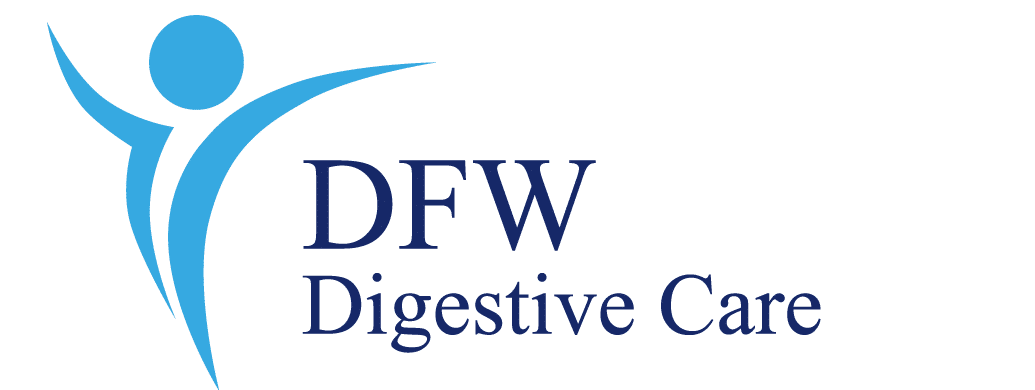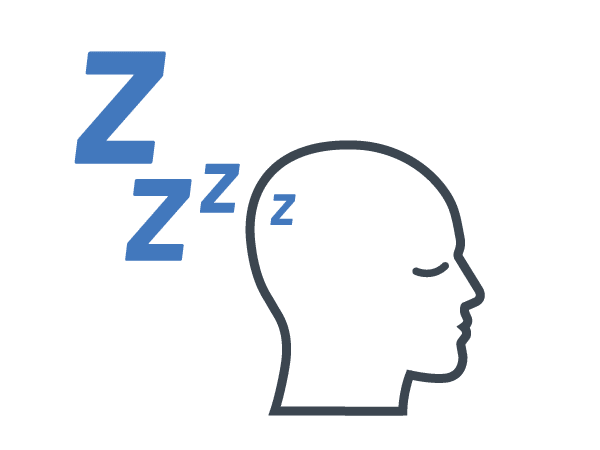Colon Cancer
How to Prepare for a Colonoscopy
Dallas Area Office
12606 Greenville Ave
Dallas, TX 75243
Mon. - Fri. 8:00 – 5:00
Sat. - Sun. By Appointment
Southlake Office
470 E State Highway 114
Southlake, TX 76092
Mon. - Fri. 8:00 – 5:00
Sat. - Sun. By Appointment
Same Day Appointments
Tel: (817) 476-8933
Same-day consultations are available. Please call to confirm availability.
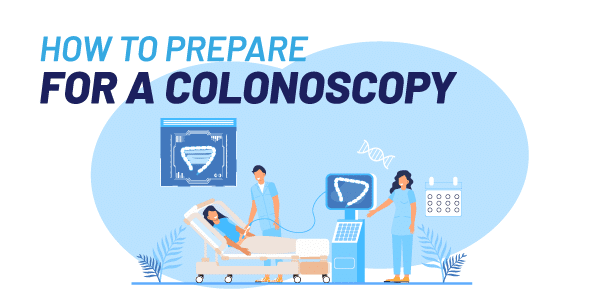
Are you about to get a colonoscopy? Admittedly, it isn’t a procedure anyone looks forward to. Nevertheless, you are making the best possible decision for your lower gastrointestinal health.
Not only can a colonoscopy be great for colon cancer screening early on, but it can also help diagnose other conditions like polyps and diverticulitis. Depending on the equipment and nature of the condition, your gastroenterologist can also address issues during the procedure.
In short, a colonoscopy provides the most comprehensive picture of your lower gastrointestinal health. But it isn’t a procedure you can just show up for. It may not be the most major procedure you can undergo; however, a colonoscopy requires preparation.
For the most part, colonoscopy preparation revolves around bowel preparation practices. If you want to know more about these, stick around and keep reading!
Low-Residue Diet Leading to the Procedure
Rarely is a colonoscopy a procedure you can have at the spur of the moment. Quite the contrary, chances are high that you need to have one scheduled with your gastroenterologist.
Upon scheduling the procedure, your gastroenterologist will have prescribed a certain diet. Whatever the diet is, its purpose is to facilitate visualization of your lower gastrointestinal tract.
In most cases, the prescribed diet is a low-residue diet. A low-residue diet consists of food that does not stay in your gastrointestinal tract for a long time. Even on a low-residue diet, your food choices may not be as limited as you might think.
A good rule of thumb is to avoid anything with large traces of dietary fiber. These can include:
- Vegetables (most of them)
- Nuts, seeds, legumes
- Corn
- Brown rice (white rice is fine)
- Whole grain products
- Fruits
Avoid high-fiber foods for 48 to 72 hours before your colonoscopy. If your gastroenterologist learns that you have not followed the diet, they can postpone your colonoscopy.
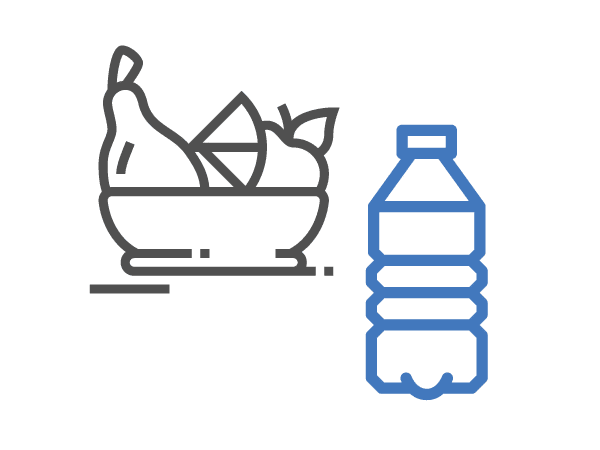
Low-Residue Diet Leading to the Procedure
Rarely is a colonoscopy a procedure you can have at the spur of the moment. Quite the contrary, chances are high that you need to have one scheduled with your gastroenterologist.
Upon scheduling the procedure, your gastroenterologist will have prescribed a certain diet. Whatever the diet is, its purpose is to facilitate visualization of your lower gastrointestinal tract.
In most cases, the prescribed diet is a low-residue diet. A low-residue diet consists of food that does not stay in your gastrointestinal tract for a long time. Even on a low-residue diet, your food choices may not be as limited as you might think.
A good rule of thumb is to avoid anything with large traces of dietary fiber. These can include:
- Vegetables (most of them)
- Nuts, seeds, legumes
- Corn
- Brown rice (white rice is fine)
- Whole grain products
- Fruits
Avoid high-fiber foods for 48 to 72 hours before your colonoscopy. If your gastroenterologist learns that you have not followed the diet, they can postpone your colonoscopy.
Clear Liquid Diet 24 Hours Before the Colonoscopy
Twenty-four hours before your procedure, your physician will help you prepare for a colonoscopy with a clear liquid diet. Liquids do not stay in the intestines for a long time, unlike solid food. Also, the liquids need to contain no dye or any sort of coloring.
Any dye or coloring may affect the color of your intestinal walls. Discoloration will make viewing your colon difficult for the gastroenterologist.
On a clear liquid diet, your food options go from broad to restrictively narrow. Twenty-four hours before the procedure, your intake needs to be monitored strictly.
You can have the following during this phase of your bowel preparation:
- Clear, electrolyte-rich drinks (sports drinks)
- Clear juice
- Water
- Coffee and tea without milk or creamer
After 24 hours of your clear liquid diet, you will have to fast and drink the prescribed laxative solution.
Fasting and Laxative Solution
For about five to six hours before your procedure, you will be asked to stop your intake. This will allow adequate gastric and intestinal clearing.
In the past, enemas were the go-to ways to prepare for a colonoscopy. However, nowadays, the enema is deemed outdated by many health professionals and physicians. Instead of an enema, patients like yourself can take laxatives and laxative solutions.
Laxative solutions are usually mixed in water or any other clear liquid. Many gastroenterologists have made it a practice to mix laxatives in flavored beverages for patients. At the time of writing, the prescribed amount of laxative solution is a gallon.
Don’t worry. You do not need to drink a gallon in one sitting. You can gradually consume the laxative solution until you have finished it.
It is common to experience inconvenience hours before the procedure since the laxative will cause frequent diarrhea. So, if you find yourself going to the bathroom frequently, don’t worry. This is expected.
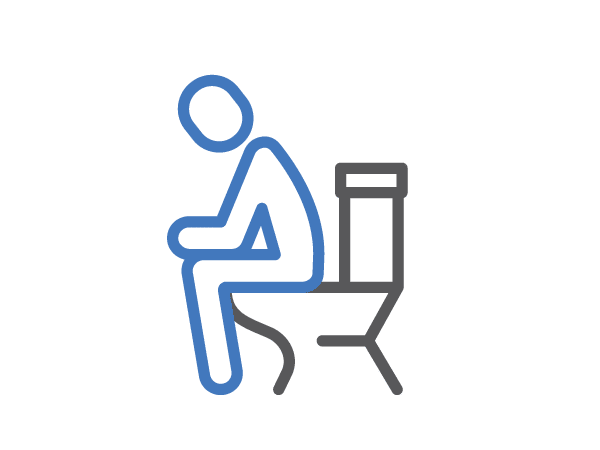
Fasting and Laxative Solution
For about five to six hours before your procedure, you will be asked to stop your intake. This will allow adequate gastric and intestinal clearing.
In the past, enemas were the go-to ways to prepare for a colonoscopy. However, nowadays, the enema is deemed outdated by many health professionals and physicians. Instead of an enema, patients like yourself can take laxatives and laxative solutions.
Laxative solutions are usually mixed in water or any other clear liquid. Many gastroenterologists have made it a practice to mix laxatives in flavored beverages for patients. At the time of writing, the prescribed amount of laxative solution is a gallon.
Don’t worry. You do not need to drink a gallon in one sitting. You can gradually consume the laxative solution until you have finished it.
It is common to experience inconvenience hours before the procedure since the laxative will cause frequent diarrhea. So, if you find yourself going to the bathroom frequently, don’t worry. This is expected.
Anesthesia Administration
An hour or so before the procedure, your physician and anesthesiologist will prepare you for sedation. For a colonoscopy, a sedative like Propofol is the anesthetic agent of choice due to its safety. Once the anesthesia takes effect, you will be ready for the procedure.
What Happens After You Prepare for a Colonoscopy?
If you have followed your bowel prep correctly, you will be ready for your colonoscopy. The colonoscopy rarely lasts for more than an hour. In fact, your gastroenterologist may complete the procedure in as little as half an hour!
During the colonoscopy, the gastroenterologist views your intestines using a colonoscope. The procedure is painless since you will be sedated. Once the procedure is complete, your gastroenterologist can give you the findings after your post-anesthesia assessment.
Final Thoughts
Nobody looks forward to a colonoscopy. However, it is actually a procedure that is quick and painless. What takes a bit of planning is the bowel preparation before the procedure. Follow your gastroenterologist’s instructions to a tee, and your colonoscopy will be a breeze!
How can we help you?
Our Services
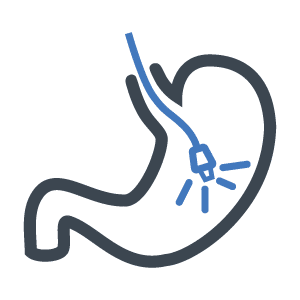
endoscopy
Endoscopic ultrasound is a test that lets your doctor look at the walls of your esophagus, stomach, and upper gastrointestinal tract. The test does not use X-rays or other radiation. The doctor uses a thin, lighted tube that bends.
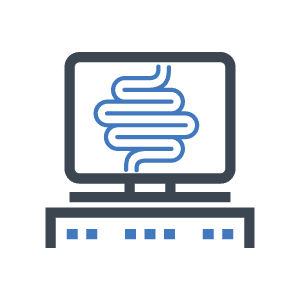
colonoscopy
Having a colonoscopy can help doctors pinpoint the possible causes behind rectal bleeding, abdominal pain, chronic diarrhea, chronic constipation, along with other intestinal problems.
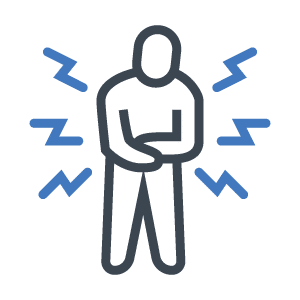
Colon Cancer Screening
If you’re over 50 or experience serious stomach pain, you should conduct regular screenings for colon cancer. Colorectal cancer is the second leading cause of death, accounting for 10 to 11% of cancer deaths overall.
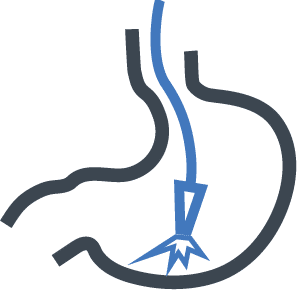
ULCER CAUTERIZATION
Gastric and duodenal ulcers are open wounds in your digestive tract and intestine tract. Ulcers can cause abdominal pain and can lead to internal hemorrhaging if not closed via non-surgical cauterization.
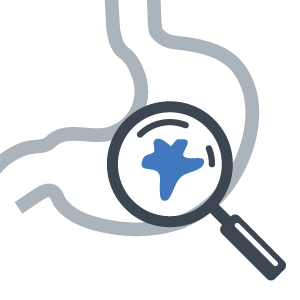
ULCER SCREENING
Having a colonoscopy can help doctors pinpoint the possible causes behind rectal bleeding, abdominal pain, chronic diarrhea, chronic constipation, along with other intestinal problems.
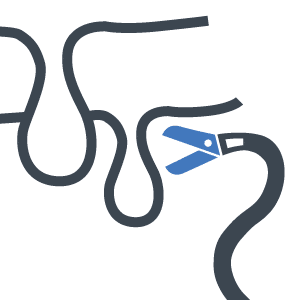
POLYP REMOVAL
If you’re over 50 or experience serious stomach pain, you should conduct regular screenings for colon cancer. Colorectal cancer is the second leading cause of death, accounting for 10 to 11% of cancer deaths overall.
What do you need to know?
Frequently Asked Questions
When to see a gastroenterologist?
Aside from being referred by your primary care doctor, you can also go directly to a gastroenterologist when you need a colon cancer screening, or you feel the following symptoms:
- Lethargy
- Loss of weight or appetite
- Vomiting
- Esophageal pain
- Excessive belching or gas
- Abdominal bloating or pain
- Acid Reflux Or Heartburn
- Dark urine
- Pale-colored stools
- Changes in bowel habits
- Diarrhea
- Hard-to-control bowel movement urges
- Leakage/underwear stains
- Rectal bleeding
What is an endoscopy?
This is a non-surgical procedure that uses an endoscope. The endoscope allows your gastroenterologist to see the insides of your digestive tract via a monitor.
That way, they can examine your digestive tract more accurately and efficiently.
What is a colonoscopy?
This is an examination to detect abnormalities or changes in your rectum or large intestines. It uses a colonoscope or a flexible tube that is inserted into your rectum. This allows your physician to see your colon’s insides because the colonoscope has a tiny video camera.
What is an EGD test?
To examine the lining of your duodenum (the upper part of your small intestine), stomach, or esophagus, you may need to undergo an EGD or esophagogastroduodenoscopy (also known as upper endoscopy).
This test also uses an endoscope that passes down your throat and along your esophagus.
That way, they can examine your digestive tract more accurately and efficiently.
How should I prepare for an upper endoscopy procedure?
You may need to do the following before an EGD:
- Set an appointment.
- Fast for about six hours before your appointment — no drinks or food.
- Get a driver to drive you home.
That way, they can examine your digestive tract more accurately and efficiently.
How long does an endoscopy procedure take?
We recommend you should be in our center for about two hours before an endoscopic procedure. For colonoscopy and EGD, you need to be sedated to make you comfortable and safe.
The test itself will only be about 30 minutes. However, you may need extra time for preoperative check-in, registration, and postoperative recovery.
Thus, the overall time you may spend in our center is about two hours.
That way, they can examine your digestive tract more accurately and efficiently.
Is my insurance acceptable?
As for Medicare, we currently do not accept it, but we accept all major insurance providers.
Before your test, we verify your benefits and eligibility. We will be happy to assist you, but you should also be aware of your insurance coverage.
Will I receive a bill after the procedure?
You may receive various statements for your bills. These include the following:
- Bill from the laboratory to analyze the specimens your physician obtain during your test
- Physician’s bill
- Bill from the center
Will I need a driver?
During an endoscopy or colonoscopy, you will receive a sedative or narcotic to help you relax during the test. Thus, after the test, you cannot drive as you may feel drowsy because of the sedative or narcotic.
Most medical facilities do not allow you to take the procedure unless you have a ride home ahead of time.
How should I fast?
Most recommend fasting the night before the procedure, while you must follow fasting six hours before the test.
Can I take regular medications before a test?
Before and after your test, we recommend you take your usual medications. However, for diabetic medications like pills or insulin, you should not take them. Other medications that are not allowed prevent clottings, such as Ticlid, Plavix, and Coumadin.
In these cases, we may have to review your medications before you undergo a test.
Is the procedure painful?
As mentioned, you will be sedated so the test will be comfortable. This means you should not feel anything during the procedure.
After the procedure, you are most likely to feel hungry, gassy, drowsy, and have a slightly dry mouth. However, these will gradually wear off.
Can I eat anything after the test?
Yes, but you should take it slow, and it is recommended to take a light meal only. We also recommend taking a nap until the effects of the sedation are completely worn off, as you will likely be drowsy for about four hours after the procedure.
Can I return to work after the test?
Yes, but it should be the following morning. You will be quite drowsy for at least four hours after the test.
How long until I see the results?
After your procedure, you can immediately know the results. Your physician will discuss the results with you and your family. We also provide a written explanation.
We will contact you once we have the results for the tissue samples because they will still undergo a lab analysis.
How long until I see the results?
After your procedure, you can immediately know the results. Your physician will discuss the results with you and your family. We also provide a written explanation.
We will contact you once we have the results for the tissue samples because they will still undergo a lab analysis.
How long until I see the results?
After your procedure, you can immediately know the results. Your physician will discuss the results with you and your family. We also provide a written explanation.
We will contact you once we have the results for the tissue samples because they will still undergo a lab analysis.
What should I do if I have other questions?
If you have more queries regarding endoscopic procedures, you can browse our page for articles related to your procedure.
You can also call us directly.
Contact us
Schedule A Consultation
We know you are busy. You can give us a call (817) 476-8933 or leave us your details and a patient care specialist we will contact you during our normal business hours.
DFW Digestive Care will never sell your contact information or send you unsolicited offers that do not pertain to our health services.
© 2021 DFW Digestive Care.
